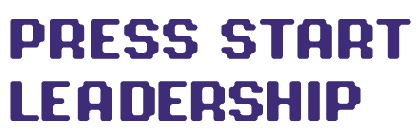Beyond the Screen: Embracing Mindfulness for Creativity, Resilience, and Innovation in Gaming
In an industry synonymous with cutting-edge technology and intense competition, video game leaders are often caught in a whirlwind of deadlines, deliverables, and dynamism that leaves little room for pause. Yet, it is within this space of stillness that some of the most impactful leadership qualities can be honed. Mindfulness, the practice of maintaining a nonjudgmental state of complete awareness of one’s thoughts and experiences in the present moment, has emerged as a powerful tool for leaders in every sector, including the high-stakes arena of video game production.
The integration of mindfulness into leadership practices is not just beneficial; it’s becoming a necessity for those looking to foster a creative, resilient, and harmonious team capable of producing the next generation of groundbreaking games. Here we explore a treasure trove of mindfulness techniques tailored for leaders in the video game industry, aiming to enhance focus, empathy, decision-making, and well-being.
Chapter 1: Laying the Foundations of Mindful Leadership
Understanding Mindfulness: Before diving into practices, it’s crucial to understand what mindfulness is—and isn’t. It’s not about emptying the mind or achieving a state of eternal calm; it’s about being present and engaging fully with the here and now, observing without judgment.
Benefits for Leaders: For leaders in the gaming industry, mindfulness can sharpen focus amidst distraction, enhance creativity during brainstorming, and improve team dynamics by fostering a more empathetic and understanding work environment.
Chapter 2: Mindful Practices for Daily Leadership
Morning Mindful Meditation: Begin each day with a 10-minute meditation to set a tone of calm and presence. This can help ground leaders in a sense of purpose and focus as they navigate the day’s challenges.
Breathing Techniques: Simple breathing exercises, like the 4-7-8 technique or box breathing, can be employed throughout the day to return to a state of calm, particularly before making significant decisions or entering important meetings.
Mindful Observation: Dedicate short periods to observing your environment or an object with full attention. This practice enhances attention to detail—a critical skill in game development—and pulls focus back to the present.
Chapter 3: Cultivating a Mindful Work Environment
Creating Mindful Spaces: Integrate areas within the workplace designed for quiet reflection or meditation. Encourage team members to use these spaces when they need a mental break.
Mindful Meetings: Start meetings with a minute of silence to allow attendees to arrive mentally and be fully present. This can significantly improve the quality of discussion and decision-making.
Mindful Listening: Practice truly listening to colleagues without forming a response while they speak. This not only improves communication but also demonstrates respect and appreciation for their ideas.
Chapter 4: Mindful Communication in Game Development
Clarity in Communication: Use clear, concise language free from jargon when discussing projects. This ensures all team members are on the same page, which is essential in a field as collaborative as game development.
Empathetic Feedback: When providing feedback, do so from a place of wanting to help improve the work rather than critiquing. Frame criticisms in a way that is constructive and supportive, which is more likely to inspire positive changes.
Responsive Rather Than Reactive: Mindfulness helps leaders respond thoughtfully to challenges rather than reacting impulsively. This shift is crucial in high-pressure situations common in game development cycles.
Chapter 5: Mindfulness in Project Management
Mindful Task Management: When planning and assigning tasks, do so with full awareness of each team member’s current workload and strengths. This ensures tasks are assigned fairly and can be completed without unnecessary stress.
Stress Reduction Techniques: Implement stress reduction practices, such as short group yoga or stretching sessions, especially during crunch times. This can improve team performance and morale.
The Art of Mindful Delegation: Delegating mindfully means considering who is best for the task and explaining its importance, which can make team members feel valued and motivated.
Chapter 6: Mindfulness and Creativity in Game Design
Fostering Creative Flow: Encourage team members to engage in solo mindfulness practices, such as walking meditations or free-writing exercises, to boost individual creative flow.
Idea Acceptance: Adopt a nonjudgmental stance toward new ideas. Even if an idea isn’t right for the current project, acknowledging it mindfully can encourage continuous innovation from the team.
Mindful Problem Solving: When issues arise, approach them with a calm and open mind. This can lead to more creative and effective solutions than traditional, reactive problem-solving methods.
Chapter 7: Overcoming Challenges with Mindfulness
Facing Failure Mindfully: When projects hit snags or fail, it’s vital to reflect on these experiences mindfully, extracting lessons without dwelling on the negative.
Managing Burnout: Mindfulness can be a key tool in recognizing the early signs of burnout, both in oneself and in team members, and taking proactive steps to address it.
Navigating Industry Pressure: Use mindfulness to maintain perspective in the face of industry pressures and trends. It can help leaders stay true to their vision and values.
Chapter 8: Mindfulness as a Strategic Advantage
Mindful Decision Making: Taking a moment to center oneself before making big decisions can lead to more thoughtful outcomes that align with long-term goals rather than short-term pressures.
Innovation through Mindfulness: A mindful approach to leadership can cultivate a work culture where innovation thrives, as team members feel more connected, valued, and understood.
Resilience Building: Mindful practices strengthen emotional resilience, enabling leaders and their teams to bounce back more quickly from setbacks—a valuable asset in the dynamic game industry.
Chapter 9: The Future of Mindful Leadership in Gaming
The Ripple Effect: As more leaders adopt mindfulness, the impact can ripple throughout the industry, leading to healthier work environments and more thoughtful, engaging games.
Incorporating Technology: Explore how VR and AR can be used to create immersive mindfulness experiences, providing a unique way for leaders and creatives in the industry to engage with these practices.
A Global Movement: As the gaming industry continues to grow globally, mindfulness becomes an essential bridge across cultures, enhancing global collaboration and empathy.
Final Thoughts:
Mindfulness in the game industry isn’t just about personal betterment—it’s about fostering a culture that champions creativity, empathy, and resilience. For leaders, it’s about setting a precedent that values the mental and emotional well-being of every individual involved in bringing a game to life. By incorporating the mindfulness techniques outlined above, leaders can not only steer their teams through the complexities of game development but also pave the way for a future where the gaming industry is synonymous with innovation and holistic well-being.
Through the consistent application of these practices, leaders can expect to see not just an improvement in their own productivity and satisfaction, but a demonstrable change in the atmosphere of their teams and the quality of their output. Remember, a mindful leader does not just create games; they create worlds where both their teams and their audiences can thrive in an environment of respect, creativity, and shared purpose.
Mindfulness is more than a buzzword or a trend; it’s a strategic element that can give leaders in the video game industry the edge they need to succeed in today’s market. It’s a journey that begins with a single breath and a moment of silence in the cacophony of daily tasks. Embrace these techniques, and you may find that the path to leadership excellence is as engaging and fulfilling as the games you aspire to create.
Thank you for reading this article to the end. I hope it has been informative and helpful. If you’d like to learn more about the topics we covered, I invite you to check out my podcast and my YouTube channel where I delve into these subjects in more depth.
Additionally, I would love to stay in touch and keep you updated on all the latest developments and insights in the world of leadership. That’s why I encourage you to sign up for my newsletter. Not only will you receive regular updates, but as a thank you for joining, I will also send you my free eBook, “5 Heroic Leadership Skills.” This eBook is packed with practical tips and strategies that will help you take your leadership skills to the next level.
So don’t wait! Sign up for my newsletter today and start your journey towards becoming a more effective and inspiring leader. I can’t wait to hear from you.
Work With Me!
If you’re on the quest to elevate your team’s leadership, production, or game design capabilities, I’m here to assist! Leveraging extensive experience and a strategic approach, I offer personalized audits, bespoke workshops, and leadership retreat facilitation to drive your team toward excellence. My commitment is to provide efficient, reliable, and proven support, ensuring you have the tools and insights needed to thrive. Ready to unlock your team’s full potential and achieve unparalleled success? Don’t hesitate—Press Start on your journey to transformation today! Feel free to reach out directly to discuss how we can tailor a solution to meet your unique needs and goals. Let’s connect and take your team’s performance to the next level!
🔗 www.pressstartleadership.com
📧 contact@pressstartleadership.com


